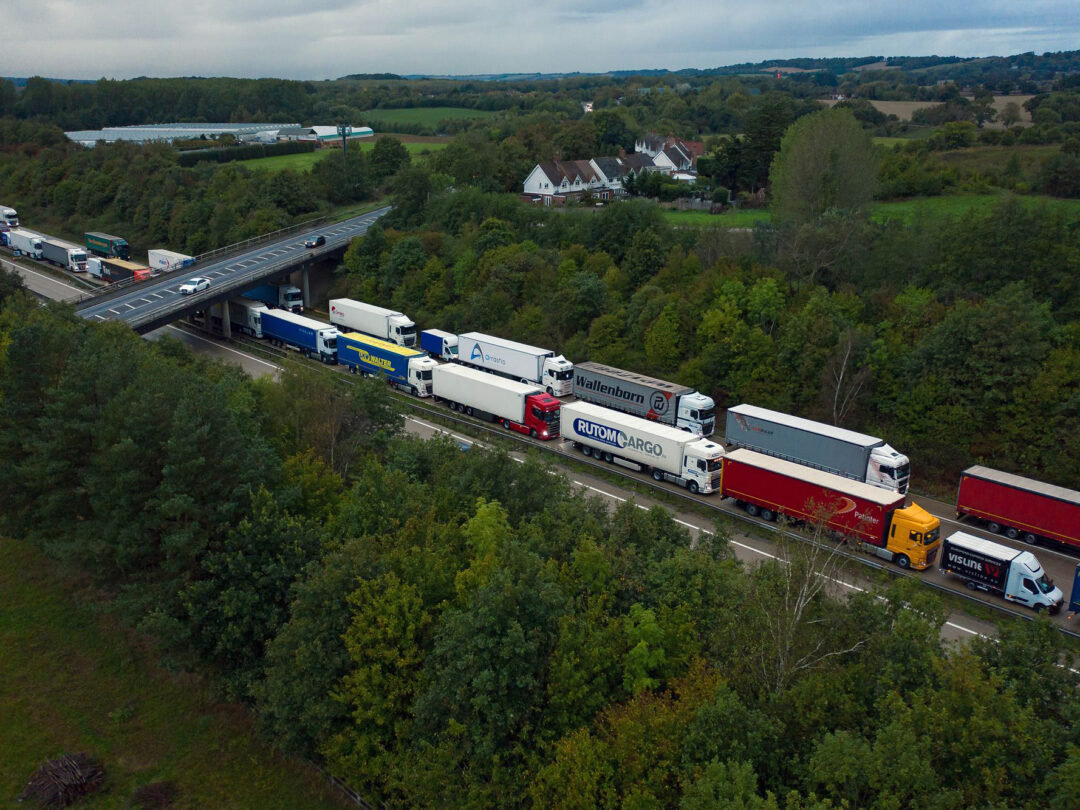
Think Tank
Using Data Analytics to Reduce Your Carbon Footprint

The benefits of harnessing the enormous volume of data captured by transportation and logistics industries cannot be overstated.
One very important and frequently overlooked benefit for this carbon-intensive industry is the ability to use analytics for carbon footprint reduction, which has both financial and reputational ramifications. Combining data analytics with process automation helps drive significant efficiencies, reducing costs, streamlining operational processes, and improving communication between shippers, carriers and brokers.
According to BCG, heavy-duty transportation (aviation, heavy road transport, and shipping) accounted for roughly 95% of all freight emissions in 2019. By improving fuel efficiency and operational efficiency using with artificial intelligence and machine learning to drive data analytics, transportation logistics operations can reduce their carbon footprint and decrease the environmental impact of moving freight throughout the supply chain.
Following are ways in which today’s logistics leaders can use data analytics to drive both carbon and cost savings, while focusing on those methods’ direct environmental impact.
Make Your Data Work for You
Applying AI and machine learning to data analytics helps to streamline operations and reduce emissions in several ways.
AI-powered systems monitor data generated by day-to-day logistics activities. This includes analyzing volumes, distances and mode selections, and documenting inefficient modes, routing and empty miles that flow from poor utilization. They also take into account the impact of fleet planning and routing, dwell time and detention tracking (during which trucks sit idle while waiting for scheduled pick-ups and drop-offs), and a myriad of other factors impacting carbon fuel utilization.
After ingesting large masses of aggregated data and identifying patterns of inefficiency, AI-powered data analytics provide insights and predictions about how shippers or carriers can improve processes and become more fuel efficient. For instance, AI can quickly show a carrier shipper if there are patterns occurring within certain routes where chronic traffic delays or repeated scheduling challenges lead to increased fuel waste. AI can also show a carrier where regularly missed backhaul opportunities result in fuel-wasting empty or “deadhead” miles. These are just a handful of examples.
By using AI and machine learning to improve processes with data analytics, businesses can enhance profitability and reduce their impact on the environment at the same time.
Greenhouse gases emitted from companies’ supply chains are five times greater than those from direct operations, according to CDP, an international nonprofit that promotes environmental disclosure. However, managing greener supply chains can equate to sizable long-term benefits for organizations, both financial and commercial.
AI and machine-learning technology is already helping forward-thinking carriers reduce deadhead miles and inefficient loading and routing. These technologies are instrumental in consolidating less-than-truckload into multi-stop truckloads, and making other mode-selection recommendations designed to reduce fuel usage. This same technology is also used to great effect, monitoring and predicting better routes based on traffic patterns, the weather and historical drive times, thus optimizing time spent in transit and reducing vehicle emissions.
When it comes to monitoring and decreasing carbon emissions, AI and machine learning can be a game changer. Together they provide deep insights into multiple aspects of a company’s carbon footprint, and identify cost-saving ways to accelerate sustainable transformation, including:
- Monitoring emissions — helping companies identify where improvements are needed along the supply chain;
- Predicting emissions — forecasting future emissions based on historical data and current reduction efforts, and
- Reducing emissions — providing detailed insight into ways in which an organization can improve efficiency in transportation and elsewhere to decrease its carbon footprint.
Bottom Line Meets Climate Action
Of 872 transport companies surveyed by the World Economic Forum in its 2020 The Net-Zero Challenge: Fast-Forward to Decisive Climate Action report, only 23% have set emissions targets. Of those, fewer than half (9%) had reduced CO2 emissions versus the previous year.
Rather than viewing sustainability and carbon reduction as a burden, logistics operations should recognize that climate action provides the opportunity to create value by tapping into new markets and meeting growing demand for low-carbon, greener services.
AI and machine learning are already paving the way for organizations with the foresight to embrace this proven yet emerging technology. Early adopters already capture healthy returns on investment into these new technologies. The resulting savings in fuel costs don’t just improve the bottom line, they also advance a company’s efforts to reduce carbon emissions and overall environmental impact. Consumers are growing more attuned to the environmental impact of the products they buy, and companies demonstrating a commitment to environmental sustainability are increasingly rewarded for addressing their role in reducing carbon emissions.
By using AI and machine learning to track their carbon footprints, companies are better positioned to employ predictive technologies to set and achieve emissions targets in a way that yields concrete results. Today’s transportation and logistics leaders can tackle two problems with one solution, by digitizing operations and deploying the AI and machine-learning capabilities of their transportation management system (TMS) platforms and integrated applications.
Businesses are increasingly viewing sustainability as something that shouldn’t be a nice-to-have, but rather an initiative at the core of their operations, greener supply chains included. AI and machine learning can pave the way for companies to streamline logistics operations, improve efficiencies and reduce emissions, leaving a smaller carbon footprint along the way.
Paul Beavers is chief technology officer with PCS Software.






